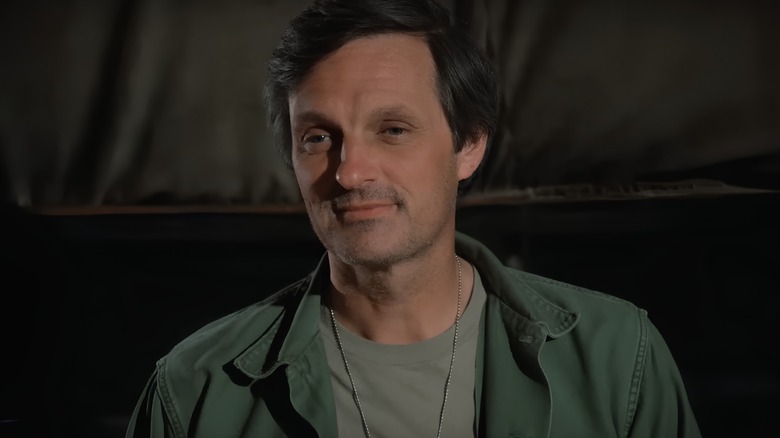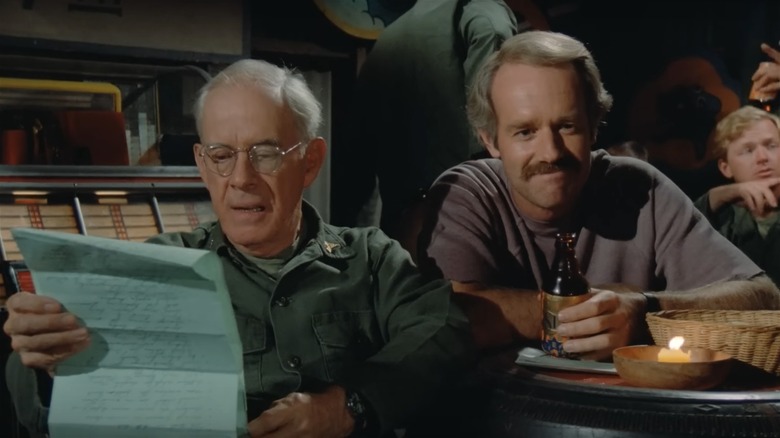What Does M*A*S*H Stand For?
Most on-screen stories about war involve battlefield heroics. The "M*A*S*H" franchise, however, shined a light on the medical personnel that endured the horrors of war from the sidelines. Appropriately, the title is an acronym for Mobile Army Surgical Hospital. Based on Richard Hooker's 1968 novel "MASH: A Novel About Three Army Doctors," "M*A*S*H" was adapted into a Robert Altman-directed film in 1970 starring Donald Sutherland, Tom Skerritt, and Elliott Gould.
The television show that followed from 1972 to 1983 arguably had an even bigger cultural impact. More than 106 million people tuned in to watch the series finale — a number that no scripted program has been able to touch since. When the two-and-a-half-hour episode ended, about 1 million viewers in New York City got up to use the bathroom at the same time, resulting in an unprecedented 6.7 million gallons of water to flush through New York's sewers.
Both the film and the TV show deftly combined scenes depicting the trauma of war with comedic moments while still showing respect to its subjects and their service. While Altman's R-rated vision was bloody and ribald, the minds behind the series had to strike the same tone in a family-friendly manner. Hawkeye Pierce (Alan Alda) and his fellow doctors and nurses may have sipped martinis and gotten into hijinks during their downtime, but "M*A*S*H" was an eye-opening look at the oppressive violence of war. "The absurdity, the drollness, the futility of their putting bodies back together again, and the overall effort is to destroy them," producer Gene Reynolds told the Television Academy Foundation (via LIFE). "It's existential."
M*A*S*H was inspired by real MASH units
To accurately represent the look and feel of the 4077th Mobile Army Surgical Hospital, "M*A*S*H" co-creators Gene Reynolds and Larry Gelbart, as well as executive producer and writer Burt Metcalfe, interviewed surgeons who had worked in MASH units during the Korean War. "We drove out to the L.A. suburbs to see this guy who'd filmed his MASH unit," medical consultant Walter Dishell recalled in an oral history of "M*A*S*H" for The Hollywood Reporter. "He said he'd never shown it to anybody because it was such a terrible time in his life. That's where the look of The Swamp and the city signposts and other things came from."
According to star Alan Alda, the team listened to countless transcripts to pull out anecdotes that could serve as the seed of episode scripts. Sometimes a small remembrance would unlock a whole plotline. In trying to recall a specific surgery, one former surgeon noted that it happened the same day that a shipment of eggs came in. That detail made it into an episode of "M*A*S*H," where eating the same food every day became monotonous for the camp.
"The interesting thing was after the second year, Larry and Gene went to Korea to visit a MASH unit," Alda added. "They found out that some of the stories we'd made up had really happened. We were that tuned in to what their experiences were."

